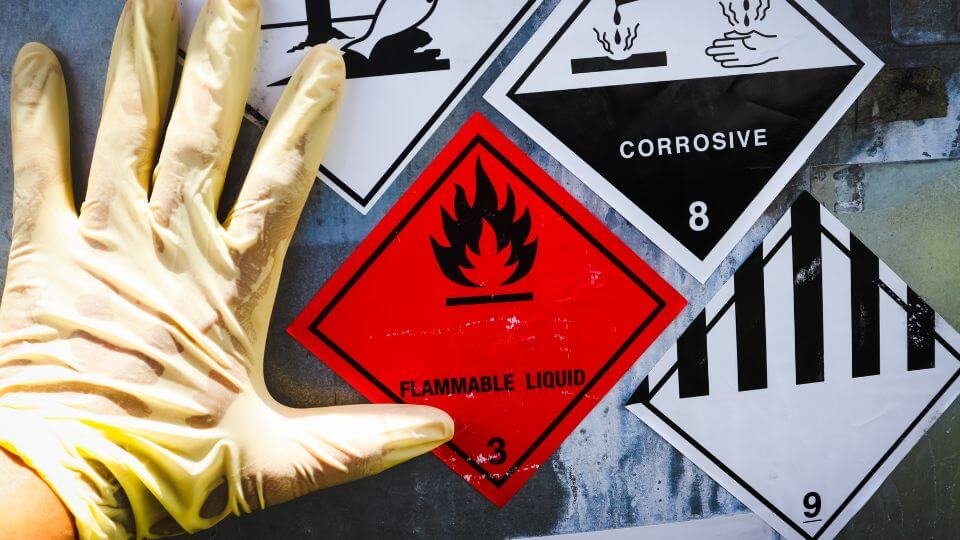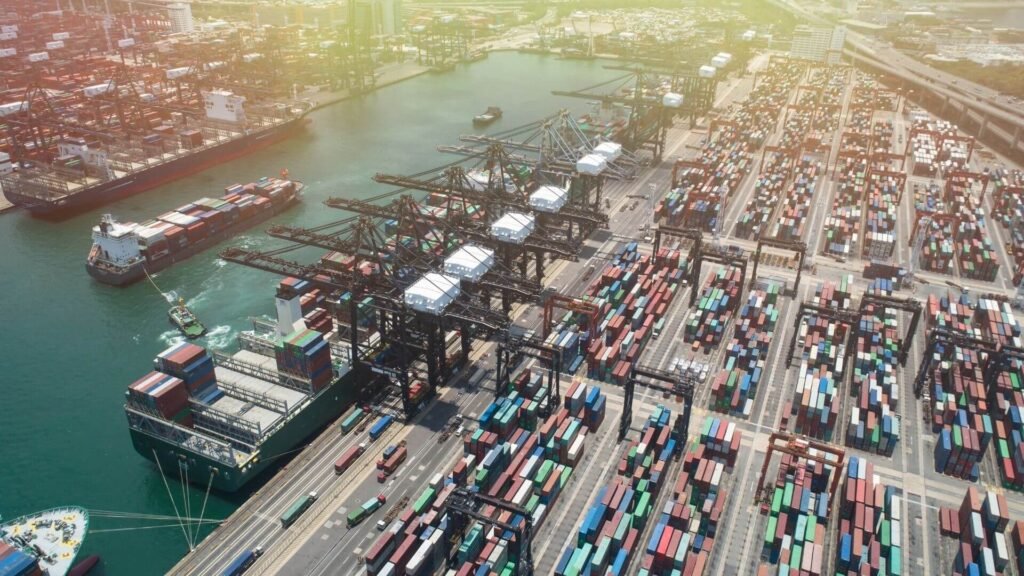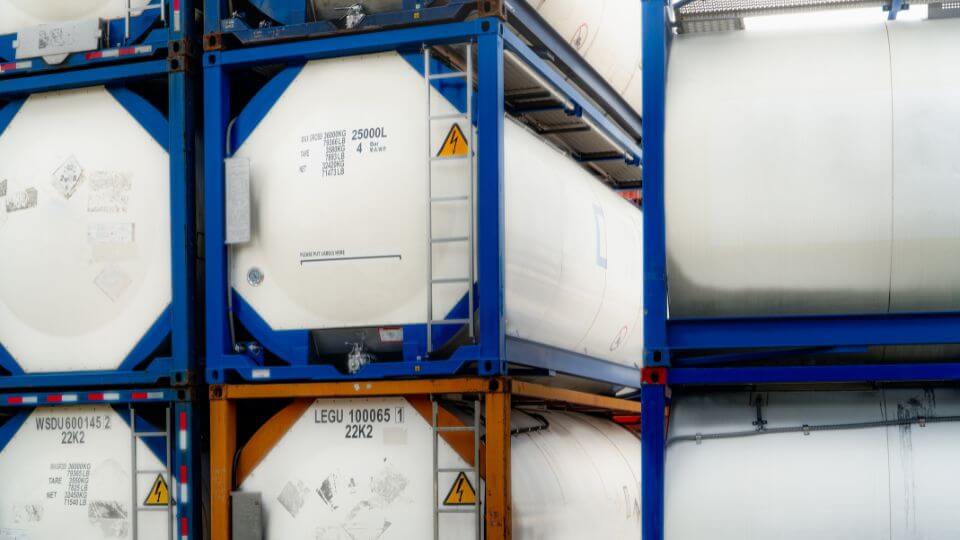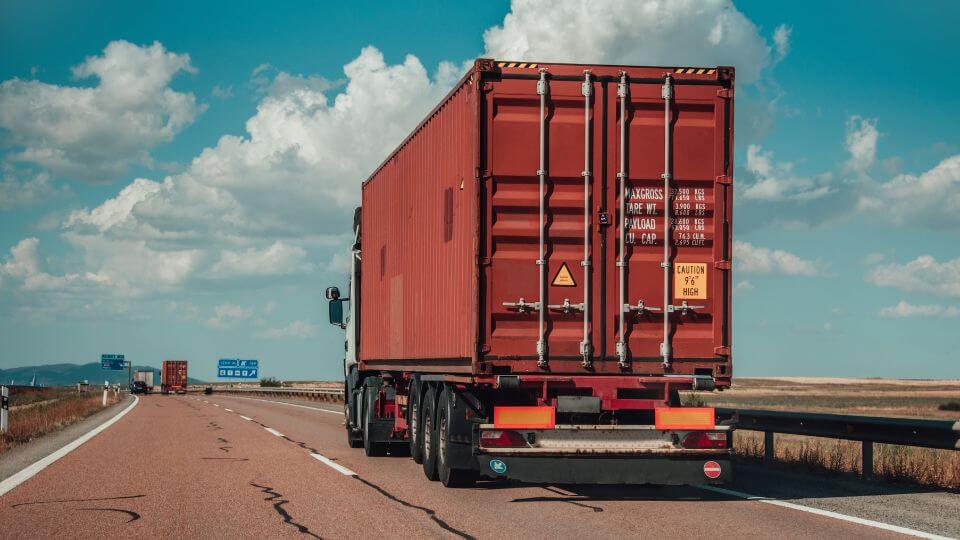

The Complete Guide to HAZMAT Table (HMT)
The Complete Guide to HAZMAT (Hazardous Materials) Table Home > Blog > The complete guide to the HAZMAT table Hazardous materials (HAZMAT) play a vital
Moving materials and products across a supply chain network involve a complex arrangement of companies that operate over long distances. This means that goods going through the supply chain are at risk of being damaged or lost at some point in the distribution network.
Companies take several measures to minimize the risk of products being shipped. Needless to say, it is very important for a business – whether it is a product supplier or dealing with suppliers – to understand the types of risks that are inherent in any supply chain network. It is one of the first steps of risk management, after all.
Understanding supply chain risk helps you to prioritize the right actions required to minimize operational issues and deliver goods safely and efficiently. This article covers 10 of the most common types of risks a business can face when managing its supply chain.


For any company dealing with supply chain management, all risks essentially boil down to this one type of risk. Financial risks include sudden increases in business costs that are required to complete a task, whether it be a single delivery for a client or an infrastructural change in the entire supply line or business setup.
These costs are a result of different circumstances, such as unfavorable fluctuations in foreign exchange currency rates or a business partner (supplier, customer, or middleman, for example) going bankrupt and, therefore, being unable to fulfill payments or supply goods for your order.
Goods can be stolen or destroyed by people who are linked to the supply chain route and this is obviously disruptive to any trading organization. Supply chain companies, such as 3PL providers, often employ several ways to track inventory and ensure products being delivered stay safe. Employing security personnel as well as improving inventory storage facilities and tracking techniques using supply chain software and SOPs are ways that can help you keep your goods secure.
Cybersecurity is also another aspect of ensuring safe and effective supply chain operations. Hackers can gain access to electronic supply chain management resources and disrupt your business operations through malware and ransomware, as well as steal sensitive information on your products and customers that can jeopardize your business. The risk is higher when the IT systems are outdated or not updated to save operational overhead costs.
Disputes between contractors due to a misinterpretation of the requirements or local laws can result in legal consequences for your company, such as fines or lawsuits and this represents a cost to your business operation.
It is often best to consult a contract lawyer to help you with the development and signing of appropriate contracts for your company. We should also consider legal obligations such as labor laws and compliance with industry regulations. Many jurisdictions also account for ethical practices and environmental risk assessments (covered below) which are often overlooked in developing countries.
Political situations across borders can be a threat to supply chain networks due to a multitude of reasons. Unstable politics can be a catalyst for war, civil unrest, or unfavorable economic regulations which can result in increased costs for your business. A weak political climate also negatively affects the logistics and delivery of physical products.
Since supply chains of many firms rely on global networks, a disruption in the network can potentially affect many regional shipments, especially if they are meant for a geographically – important route. Important shipping routes or border crossings may be blocked in case of political and military tensions. The same is true for air freight which requires safe airspace.
Geopolitical risks can also lead to financial issues in specific regions which are subject to monetary sanctions and are often excluded from standard transaction ecosystems. Many businesses in these regions rely on cash payments or other payment methods which makes trading much harder, and operating supply chain routes all the more undesirable.
In the wake of today’s widespread climate crisis, one must not underestimate the dangers posed by natural disasters. Floods, earthquakes, and tornadoes can disrupt supply lines and schedules. They can also cause property damage which can take time and money to recover from.
The impact of climate change also means more variation in the types of natural disasters we can expect, and this can be difficult to predict. Warming climates can also adversely affect the state of goods and services in transit. This is especially true for perishable goods which are prone to ripening, or even temperature-sensitive materials which are predisposed to damage or deterioration in quality.
When we source goods from a supplier, we need to account for the impact a supplier’s business has on the environment. This requires knowledge about how the products are produced, the impact of the production process on the environment in terms of carbon emissions, pollution, ecological destruction, and so on. Depending on your jurisdiction, this can also result in hefty fines or other restrictions from legal bodies or other stakeholders.
Disputes between organizations and workers can result in strikes, which in turn lead to the cessation of operations. Such developments can disrupt time sensitive-operations, particularly in the supply chains dependent on aviation and land transport industries. Such strikes are often a result of either or both poor working conditions (which compromise worker safety) and employee dissatisfaction with current wage rates.
Demand and supply are inextricably linked to and dependent upon each other. Predicting the demand of a particular product allows you to determine the material requirements and work to arrange for them ahead of time. Raw material supply, however, is not always under your control, especially if your company is dealing with external vendors.
Shortages occur because of a limited capacity of global markets to produce a specific component during surging demand. This could be a chemical (like Lithium for modern electric batteries) or a technical product (like advanced computer chips which require specialized factories).
Supply chains involve a diverse array of equipment to run standard processes while shipping different products. A combination of heavy industrial equipment, sensitive chemicals (like flammable or breakable materials), and extreme temperature/pressure conditions is a recipe for an accident just waiting to happen. These accidents can result in damage to goods and operational staff.
The net result is a disruption in supply operations as well as the accompanying financial losses and potential legal issues. Companies take several measures to make their operations safer, but it can be difficult to manage everything going on a global level, which is why you should always consider a responsible logistics partner who understands the unique needs and requirements of your supply chain networks. For instance, if you are working in the automotive industry, then a logistics company with specific expertise in this industry will be of immense value.
In some cases, operational issues can also occur at the supplier’s end or the third-party contractor’s end, resulting in a slow production rate, a supply of low-quality goods, or a disruption in service delivery. These risks are often out of a normal organization’s control. It does help if you hire a professional logistics service and select the right vendor based on past experience.
We think it is important to mention this one since it has had a huge impact on the global stage in recent years. A loss of lives, port shutdowns due to contaminations, labor shortages due to lockdowns and vaccine mandates, work-from-home challenges, and economic problems are some of the effects of the COVID-19 pandemic on supply chains worldwide.
The sum of all these adversarial consequences has led to increased shipping costs, shipping delays, and hefty financial burdens on companies and businesses today. While many regions may be somewhat better prepared to handle COVID-19 adequately, by no means is it safe to say that the pandemic outbreak is no longer applicable for risk assessments in global supply chain.
In this post, we’ve covered the most common types of risks that supply chains can be exposed to. However, one should always expect the unexpected and be prepared accordingly. As it is, risk can come in any form, and some of them might be out of your control or you may not have the expertise or resources necessary to handle them on your own.
By partnering with a reliable 3PL logistics provider like Logos for managing your supply chain operations, you can ensure more safety and efficiency in your supply network. We are committed to improving and streamlining your supply chain operations and delivering your products to your customers under highly customizable terms and conditions tailored to your business.


The Complete Guide to HAZMAT (Hazardous Materials) Table Home > Blog > The complete guide to the HAZMAT table Hazardous materials (HAZMAT) play a vital


10 Common Hazardous Materials (HAZMAT) in Logistics Home > Blog > 10 common hazardous materials (HAZMAT) in logistics In the complex landscape of logistics, ensuring


11 Different Types of Cargo Containers & Their Impact on Shipping Home > Blog > The 11 different types of cargo containers and their impact
© 2008-2024 Logos Logistics. All Rights Reserved, Logos Logistics Inc.